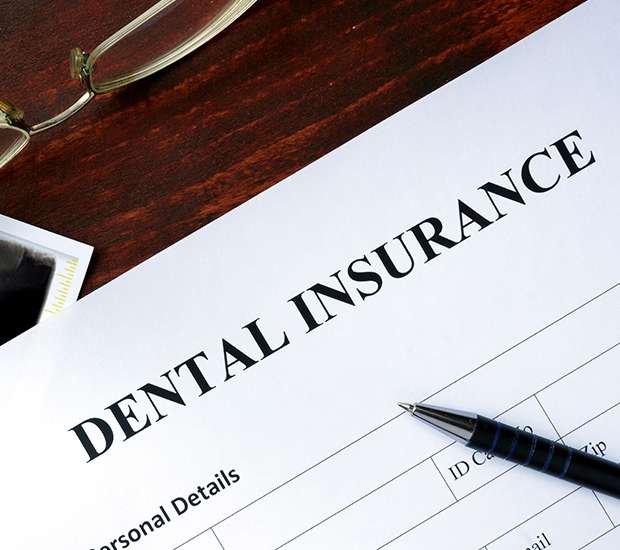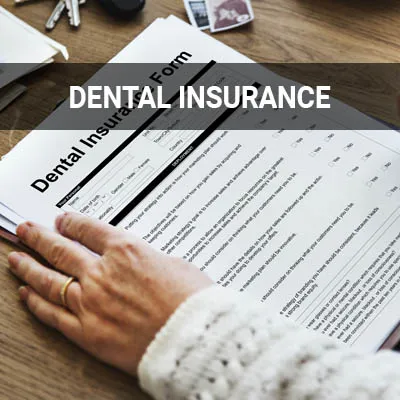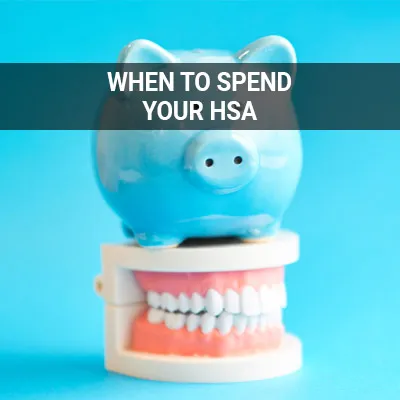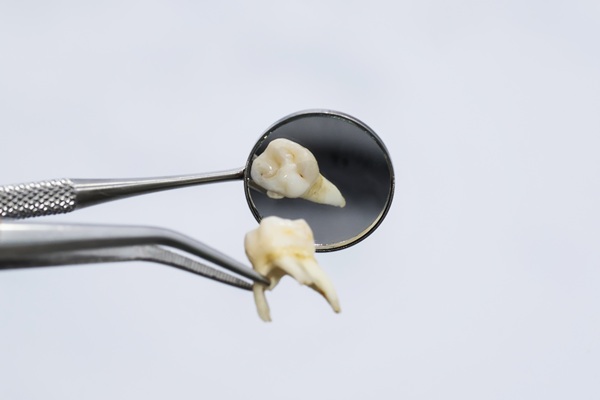Dental Insurance Brooklyn, NY
Dental insurance is a form of health insurance designed to cover some of the costs of standard dental care. Fortunately, compared to health insurance, dental insurance is relatively easy to understand. Dental insurance is also available either as a standalone policy or part of a larger medical insurance plan.
If you are looking for a new dental insurance plan, make sure you know the different options before making your final decision. No matter what choice you make, we at Nostrand Dental are here for you. We are proud to serve patients in Brooklyn and the surrounding area. Call us today at (718) 513-9685 to schedule an appointment or learn more about our services.
Understanding Dental Insurance
Dental insurance gives people coverage to help pay for certain types of dental work. Having this coverage is the best way to prepare for any unexpected dental problems that might arise. Each month, people will pay a set dollar amount, called a premium, to pay for coverage. The monthly premium will depend on the insurance company, the location, and the chosen plan. Depending on the insurance plan, it can cover some or even all of the costs of certain dental treatments.
In many cases, the dentist's office will bill the insurance plan directly for care provided, and the patient will only need to pay a copay for each visit or treatment. A dentist can not answer questions about a specific dental insurance plan or predict what level of coverage for a particular procedure will be. People should contact their employer's benefits department, dental insurance plan, or the third-party payer of a health plan for any questions about coverage.
“Depending on the insurance plan, it can cover some or even all of the costs of certain dental treatments.”
Choosing the Right Dental Plan for You
Choosing the right dental plan can be an intimidating process. There are many different types of dental plans. For instance, group insurance, individual and family plans, indemnity dental plans, preferred provider organization (PPO) plans, and health maintenance organization (HMO) plans are all possible choices.
Indemnity dental plans are also known as "fee-for-service plans." They are not as common in the Marketplace, and insurers cap the amount of money they will pay for certain procedures in this type of plan. Patients will have to pay out-of-pocket if a dentist charges higher than this set amount. A preferred provider organization (PPO) plan is much more common. Patients who choose to use out-of-network providers with a PPO plan will have to pay more out of pocket. With a health maintenance organization (HMO) plan, patients must pay monthly or annual premiums but can only see providers within their network.
“Choosing the right dental plan can be an intimidating process.”
Dental Coverage
No matter what dental plan a patient chooses, it is essential to double-check what services are included. Some of the most common dental services patients want are routine preventative care and orthodontic services. Though most dental plans cover routine services, they may also require a copay or a fixed amount a patient pays for a health service after meeting their deductible.
However, not all dental plans include coverage for orthodontic services and other specialized services. Therefore, it is imperative to read the details of each plan carefully. Patients who are unsure of the details of their plan should call their insurer to clarify any questions they may have so they are prepared for all scenarios.
“…not all dental plans include coverage for orthodontic services and other specialized services.”
Check out what others are saying about our dental services on Yelp: Dental Insurance in Brooklyn, NY
Affordable Care Online Enrollment
The Affordable Care Act (ACA) is a comprehensive healthcare reform intended to extend health insurance coverage to millions of uninsured Americans by legally requiring them to buy health insurance. It does not cover dental coverage for adults, but it does mandate that dental insurance is available to families with children. Adults do not have to buy coverage for themselves.
People can get dental coverage either as part of a health plan or by themselves through a separate, stand-alone dental plan. People interested in enrolling should create an account and apply for a plan during open enrollment. They can also browse plans on healthcare.gov to determine whether you qualify for a special enrollment period.
“People can get dental coverage either as part of a health plan or by themselves through a separate, stand-alone dental plan.”
Questions Answered on This Page
Q. How does dental insurance work?
Q. How can I get affordable dental care online?
Q. What are the different kinds of dental plans?
Q. How can I tell what is included in my dental coverage?
People Also Ask
Q. Is dental insurance worth it?
Q. What are the pros and cons of an HSA?
Q. How can I find an affordable dental insurance plan for my family and me?
Dental Coverage Through Employers
Most Americans receive their dental coverage through their employers, with most dental plans following the 100-80-50 coverage structure. According to this structure, preventative care is covered at 100%, basic procedures are covered at 80%, and major procedures are covered at 50% or more. However, it is essential to double-check the details of each plan's deductibles (the amount the patient must pay before the carrier begins to pay) and copays (a fixed amount the patient must pay after paying the deductible).
Many individuals also use their flexible spending accounts (FSAs) to cover their dental costs. FSAs are classified as tax-exempt savings accounts, meaning there are no employment or federal income taxes deducted from their contributions. They also have no reporting requirements for federal tax returns. While FSAs cover deductibles and copays for routine dental procedures, they may not cover costs for cosmetic dentistry.
“…it is essential to double-check the details of each plan’s deductibles (the amount the patient must pay before the carrier begins to pay) and copays (a fixed amount the patient must pay after paying the deductible).”
Dental Insurance Fees
Like health insurance plans in the United States, dental insurance plans come with costs, such as deductibles and copays. A deductible is a minimum amount that a person must pay before the insurance policy pays for anything. The deductible will vary depending on the type of dental insurance. Once the patient pays the deductible, their insurance plan will pay for the remaining costs.
Patients may also have to pay a preset amount, called a co-pay, before receiving a service or treatment covered by your insurance provider. The co-pay is usually due to the dentist at the time of the service. People will have to pay it even after they reach their deductible.
“Similar to health insurance plans in the United States, dental insurance plans come with costs.”
Frequently Asked Questions
Q. Is dental health really that important?
A. Yes. Many people mistakenly underestimate the importance of oral health. However, it is intrinsically linked to overall health. Neglecting one's oral health may have disastrous effects overall.
Q. Do I actually need a dental insurance plan?
A. Yes. Dental healthcare can be costly without insurance, especially if you are keeping up with your routine checkups and cleanings. Choosing the right dental insurance plan can help patients afford preventative dental care.
Q. What questions should I ask while looking for the right dental insurance plan for me?
A. There are a few things to keep in mind when looking for dental insurance plans. For example, if you anticipate needing a procedure in the future, make sure to ask whether it will be covered under your insurance. You should also ask if you can see any dentist of your choosing or if you must select one within the provider network, whether you can change dentists once you are enrolled, and how many people the plan will cover. Other pertinent information includes the deductible and copay costs and whether the plan is rated highly by an independent rating firm.
Q. What is a discount dental plan (DDP)?
A. A discount dental plan (DDP) is an untraditional insurance plan where the patient pays the cost of treatment at the contracted rate as determined by the plan. This type of plan does not involve any claim forms. However, patients must make monthly or annual payments to receive care from providers within the dental network at discounted prices and on a set fee schedule.
Q. Who should I talk to about my dental insurance plan's benefits or a claim?
A. Contact your insurance carrier for any questions and concerns you may have about your benefits or claims. They can access your account to review your benefits, claims activity, and eligibility.
Dental Terminology
Call Us Today
Dental insurance can help you offset the cost of dental care. Nostrand Dental can help you learn more about what your plan covers. Call us today at 718-513-9685 to learn more about our services or schedule an appointment.
Helpful Related Links
- American Dental Association (ADA). Glossary of Dental Clinical Terms. 2024
- American Academy of Cosmetic Dentistry® (AACD). Home Page. 2024
- WebMD. WebMD’s Oral Care Guide. 2024
About our business, license, and website security
- Nostrand Dental was established in 1998.
- We accept the following payment methods: Cash, CareCredit, Check, Discover, MasterCard, and Visa
- We serve patients from the following counties: Kings County, New York County, Richmond County, Queens County, and Nassau County
- We serve patients from the following cities: Brooklyn, Manhattan, Queens, Staten Island, and Long Island
- NY (License #46702). View License Information and Specifics
- National Provider Identifier Database (1457434540). View NPI Registry Information
- Norton Safe Web. View Details
- Trend Micro Site Safety Center. View Details
Back to top of Dental Insurance










